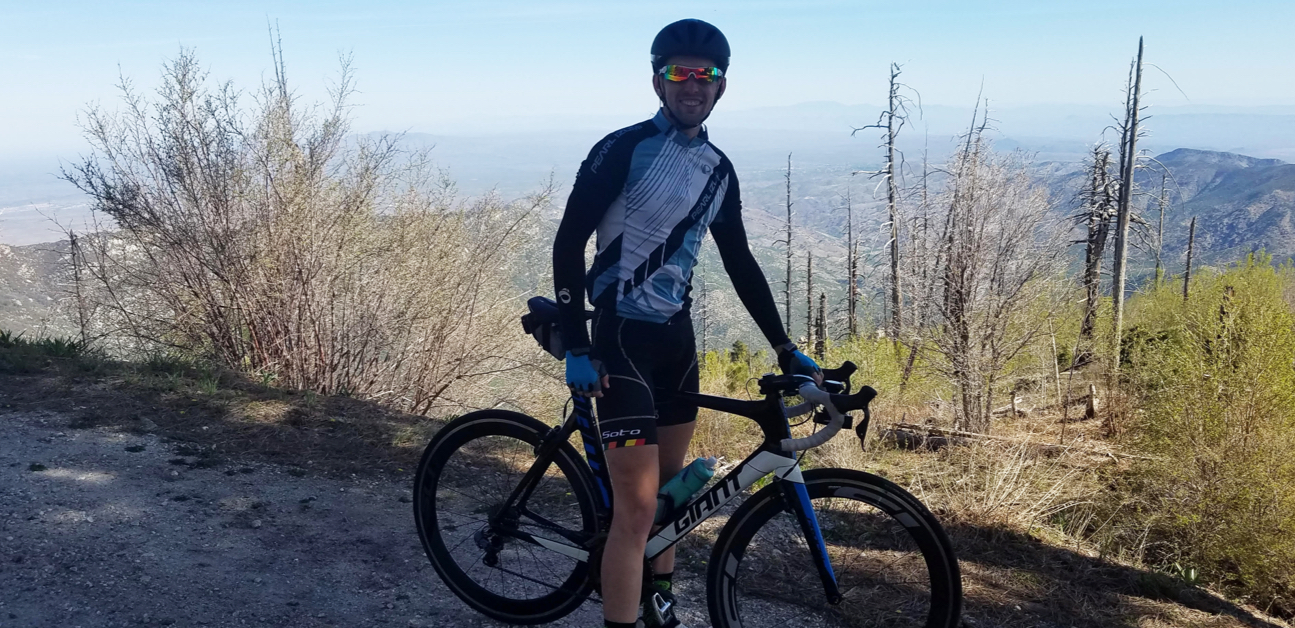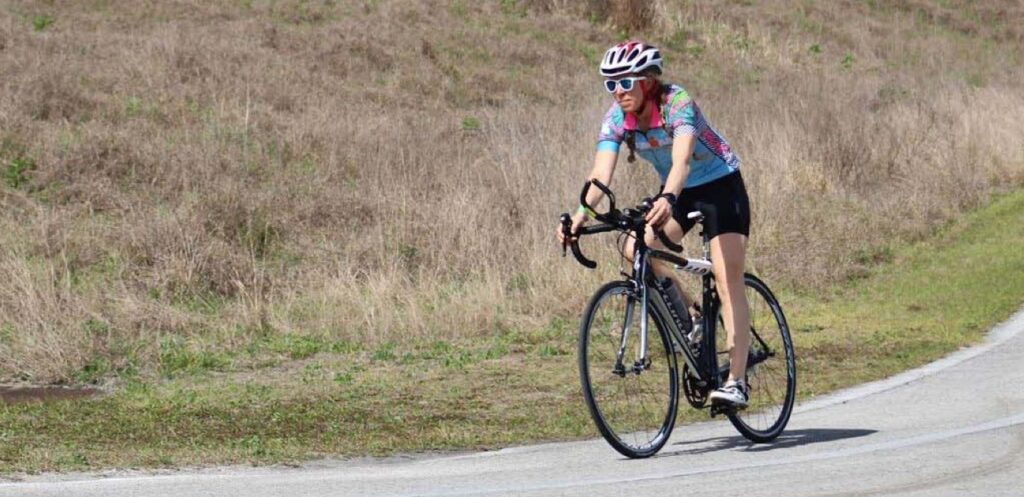How a Med Student added 80w to their FTP with TrainerRoad

Cameron Seamons raised his FTP by 80 watts training for the Triple Bypass Century and ultra-distance running events with TrainerRoad, all while being a busy medical school student. He has tips for how he manages a 50-hour workweek and uses low-volume training for long-distance endurance events.
Share your success story and tell us how TrainerRoad helped you reach your goals.
Interest in Endurance Sports
Cameron wasn’t super active as a kid. But by the time high school rolled around, he played football and developed a general dislike for any endurance activities. It wasn’t until his two-year mission in Chile from 2013 to 2015, when he started running, that this began to change. Starting to run gave him the idea to complete an IRONMAN triathlon.
In 2017, he completed a Half-IRONMAN. With a triathlon under his belt, coupled with his father-in-law’s cycling interest, Cameron gravitated towards long-distance cycling and started training for the Triple Bypass Century. The Triple Bypass is a 110-mile ride that crosses three mountain passes and gains over 10,000 feet of elevation.
Tips for Training with a Busy Schedule
As a third-year medical school student, Cameron’s work and study schedule can take up anywhere between fifty to sixty hours of his time each week. With these commitments fitting in training is a challenge, but Cameron has some tips for training with a busy schedule.
Have a Healthy Relationship with Training
Cameron believes that setting firm priorities is essential. For him, his wife and school are the most important. If training gets in the way of those two things, he knows it’s time to cut it back a bit. Keeping priorities in perspective also helps him remember that he will miss some workouts but that you don’t have to beat yourself up over it.
Be Flexible
Consistency is the key to progress, and remaining flexible is the way to get there. There will be times when you have to miss a workout or cut one short. Cameron’s flexibility allows him to make up missed workouts when he can. As a result, he’s set a goal to hit all of his workouts whenever he can, with more emphasis placed on the essential event-prep workouts each week.
Early Morning Workouts
Getting on the bike early in the morning is a challenge, and Cameron regularly has had to workout at 4:30 a.m. For the first two years of medical school, Cameron was training early in the morning. Now with clinical rotations starting early, he has to train late in the evenings.
He’s learned the hard way how tough it is to fuel enough in the morning, though. With some experimentation and help from the TrainerRoad Forum, Cameron created a DIY drink mix to help him get around 80 grams of carbohydrates per hour. That, paired with an energy bar, helped him get the nutrition needed for high-intensity efforts.
Sleep
Sleep can seem like a luxury for those with hectic schedules, but it’s something that’s necessary for well-being and performance. Right now, during the week, Cameron ends up only getting about 6-7 hours of sleep each night. When he has a late night of working or studying, his solution is to adapt and bump the next morning’s workout to the evening.
Training for Long-Distance Cycling and Running
Cameron signed up for TrainerRoad in 2018, the summer before starting medical school, to prepare for the Triple Bypass Century. He completed a mid-volume plan with Sweet Spot Base phases, a Sustained Power Build phase, and the Century Specialty phase. When Cameron began, his FTP was around 192w, but by now is 272w—an increase of 80w!
Long-Distance Cycling
Cameron was a bit shocked at the effort needed for interval training. Before, he had only done heart rate-based training and rides for fun without structure. The workouts were hard but doable. Commenting on the progress he’s made with TrainerRoad, Cameron said, “The gains are real.”
Heading into the Triple Bypass, Cameron felt prepared from the training and experience from the Kokopelli Relay. Heading up the second pass of the day, he was hurting a bit and was probably paying for starting out too hard. But mostly, Cameron stuck to his pacing plan of riding at 67% of FTP. His two most significant takeaways from the event were learning how to evenly pace himself and knowing that he could go the distance.
Ultra-Distance Trail Running
Cameron likes to throw in some variety with his activities. It makes him feel like a more well-rounded athlete with the added benefit of new goals to achieve. With that in mind, Cameron started trail running after the Triple Bypass and loved it. Soon he competed in a 50 mile and 50km, placing twelfth and eighth.
Switching training from cycling to running wasn’t too bad, other than the increased fatigue in the legs. Because he enjoyed TrainerRoad so much, Cameron continued with a low-volume training plan. He saved the intense workouts for the bike while doing a couple of easy runs each week. Camerons said, “TrainerRoad gave me the intensity without the hard shock of running.”
What’s Next?
Once Cameron finishes medical school, he’ll still have a residency to complete. While still undecided, he’s interested in physical medicine and rehabilitation therapy. He wants to do a full-distance IRONMAN and plans on a few solo adventures, like riding the White Rim Trail.
Whatever future events may be on the horizon, Cameron believes in the importance of having a passion for training. Trying different events reinvigorates his passion for training while providing opportunities for learning more about himself and the world. He said, “I love using my human power to take myself to beautiful places in the world, which drives my decision for whatever races I choose to sign up for, whether they be cycling, tri, or ultra-running.”
Tell us your story. Success isn’t always a race win. It can be life-changing health improvements, reaching a personal goal, or more.
For more cycling training knowledge, listen to Ask a Cycling Coach — the only podcast dedicated to making you a faster cyclist. New episodes are released weekly.
